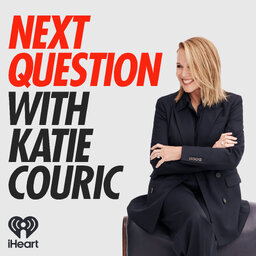Ibram Kendi isn’t waiting around for equality
Dr. Ibram X. Kendi is one of the country’s leading anti-racist scholars. And, in fact, everything that Dr. Kendi does — as a professor, an author, a researcher, a podcast host, a human — attempts to reframe how we think about racism and how we fight it. In this episode of Next Question with Katie Couric, Katie talks with Dr. Kendi about his prolific anti-racism work, which encompasses his academic leadership and Center for Antiracist Research at Boston University, his multiple books, including “Four Hundred Souls: A Community History of African America, 1619-2019,” which he co-edited with Keisha N. Blain, the forthcoming online publication he’s launching with the Boston Globe called “The Emancipator,” and his new podcast, “Be Antiracist,” coming out June 9. They also touch upon the solemn anniversary of George Floyd’s murder and how far we have and haven’t come in this year of racial reckoning, as well as why it’s so important to start anti-racist discussions early, and how his devastating 2018 cancer diagnosis propels him.
Find out more about Dr. Kendi’s work:
Learn more about your ad-choices at https://www.iheartpodcastnetwork.com
 Next Question with Katie Couric
Next Question with Katie Couric


